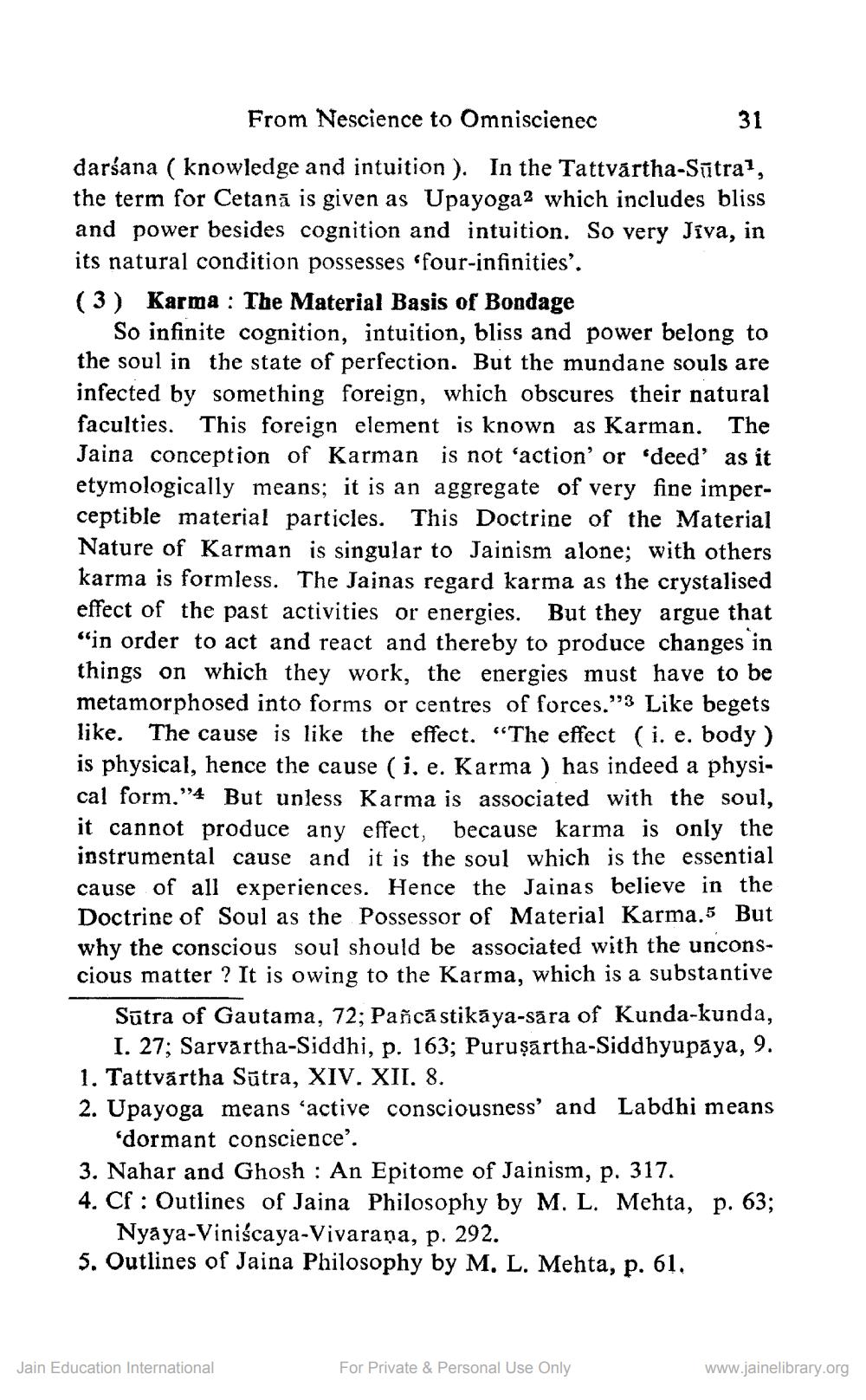________________
From Nescience to Omniscienec
31
darśana ( knowledge and intuition ). In the Tattvartha-Sūtra?, the term for Cetană is given as Upayoga2 which includes bliss and power besides cognition and intuition. So very Jiva, in its natural condition possesses 'four-infinities'. (3) Karma : The Material Basis of Bondage
So infinite cognition, intuition, bliss and power belong to the soul in the state of perfection. But the mundane souls are infected by something foreign, which obscures their natural faculties. This foreign element is known as Karman. The Jaina conception of Karman is not ‘action' or 'deed' as it etymologically means; it is an aggregate of very fine imperceptible material particles. This Doctrine of the Material Nature of Karman is singular to Jainism alone; with others karma is formless. The Jainas regard karma as the crystalised effect of the past activities or energies. But they argue that “in order to act and react and thereby to produce changes in things on which they work, the energies must have to be metamorphosed into forms or centres of forces."'3 Like begets like. The cause is like the effect. “The effect (i. e. body) is physical, hence the cause (i. e. Karma ) has indeed a physical form."4 But unless Karma is associated with the soul, it cannot produce any effect, because karma is only the instrumental cause and it is the soul which is the essential cause of all experiences. Hence the Jainas believe in the Doctrine of Soul as the possessor of Material Karma.5 But why the conscious soul should be associated with the unconscious matter ? It is owing to the Karma, which is a substantive
Sūtra of Gautama, 72; Pañcâstikāya-sära of Kunda-kunda,
I. 27; Sarvartha-Siddhi, p. 163; Puruşartha-Siddhyupāya, 9. 1. Tattvārtha Sūtra, XIV. XII. 8. 2. Upayoga means “active consciousness' and Labdhi means
'dormant conscience'. 3. Nahar and Ghosh : An Epitome of Jainism, p. 317. 4. Cf : Outlines of Jaina Philosophy by M. L. Mehta, p. 63;
Nyaya-Viniscaya-Vivarana, p. 292. 5. Outlines of Jaina Philosophy by M, L. Mehta, p. 61.
Jain Education International
For Private & Personal Use Only
www.jainelibrary.org




